The state’s biggest conference about biking and walking policy is next month, and unlike in past years, it’ll take place in Portland.
An annual project of the Portland-based Bicycle Transportation Alliance, the Oregon Active Transportation Summit is a professional networking and education event that gathers wisdom from the country’s best state for biking.
This year’s event will include breakout panels and keynotes at the downtown Governor Hotel on Monday, April 21, followed by a day of mobile workshops and bike tours on Tuesday. Tuesday will also offer a new feature of OATS: full-day trainings in urban bikeway design and urban street design from NACTO.
The sponsor mix is also different this year: instead of Cycle Oregon as the presenting sponsor, the BTA has lined up a coalition of smaller sponsors.
Though the keynote speakers aren’t yet finalized, the session descriptions went online Tuesday afternoon. A few of my favorites:
Creating and Using Good Counting Information
As old as it is true, the statement, “it doesn’t count unless it’s counted,” can still vex planners and advocates wanting to make the case that active transportation programs and investments in their communities are effective. Krista Nordback will explain how jurisdictions can create robust bicycle and pedestrian count programs based on new guidance from the Federal Highway Administration’s Traffic Monitoring Guide. Roger Geller will then briefly describe his city’s long-time bicycle counting program that has relied on the organized efforts of many volunteers and, more importantly, how Portland has been able to use that data to make to demonstrate the effectiveness of bicycling, demonstrate its increasing safety, and provided usable data to traffic engineers when designing intersections.
Krista will then share her award-winning research that demonstrated measurable increases in bicycling and reductions in automotive traffic associated with Boulder’s bike to work day, the first study to document reduction in motor vehicle traffic from a bike to work day event. It provides a model that other communities can easily replicate.
How We Get Around: Barriers to active transportation and opportunities for advocacy in minority and low-income communities
What are the challenges faced by underserved, minority, and low-income communities as they attempt to navigate by bike, bus, or on foot? How can we address these challenges to help more people meet their daily needs actively? This session will allow members of minority and underserved communities from across the Portland metropolitan region to share the barriers they face in getting around, and their successful efforts to improve access to active transportation in their neighborhoods through transit advocacy, documenting pedestrian safety needs, and the Community Cycling Center’s “Understanding Barriers to Bicycling” project. Attendees will walk away understanding specific challenges to active transportation for underserved communities and how they can support and build upon community-led efforts for change.
Parking, Parking Everywhere: What Better Management Could Mean for Active Transportation
From urban neighborhoods to suburbs to small city Main Streets, parking is often a hotly debated topic. This is especially true in neighborhoods experiencing new infill. As cities around the country experiment with new ways to manage parking, how can we serve neighborhoods’ needs while accounting for the costs and impacts of parking? How do parking management strategies – from market-based to regulatory – affect active transportation and land use? Is there a potential to meet multiple goals for housing affordability, active transportation, and land use through smarter parking policy? This panel will consider lessons from Northwest cities and around the nation.
Using Visualization Tools for Effective Communication or, “I’ll believe it when I see it”
Effective communication about proposed changes to roadway configuration to agency staff and the public at large have always relied on visual tools. Typically, interested parties are presented only with dimensioned plans and cross-sections. However, a class of visual presentations that have been well-used in architecture and more sparingly in transportation projects have recently been gaining prominence with public transportation projects. These three-dimensional representations (that are often interactive and animated) make it easier for viewers to understand the experiential impact of proposed roadway reconfigurations and are becoming invaluable communication and public involvement tools.
The presenters will discuss their varied experience with a whole spectrum of graphic tools that can be used to break down technical barriers, encourage collaboration, convey complex concepts and engage stakeholders. They will present relevant project examples and different perspectives on how graphics can be integral at all stages of a project, including tips on how to work with designers to get powerful and cost-effective results.
The conference costs $85 to attend, or $75 for those who register by March 31. The fee includes a light continental breakfast, full plated lunch, and no-host bar reception Monday. Continuing education credit is available from the NACTO trainings on Tuesday, which cost an additional $50.
Some scholarships are available thanks to the support of David Evans and Associates and Alta Planning + Design. For information, email stephanie@btaoregon.org with the subject line: Summit Scholarship.



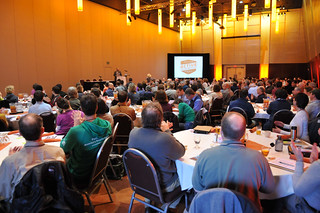
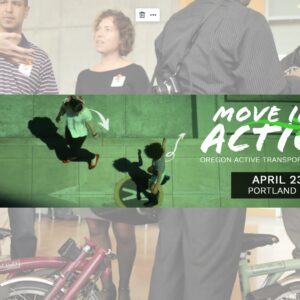
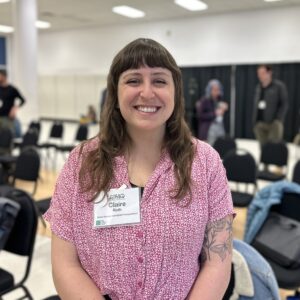
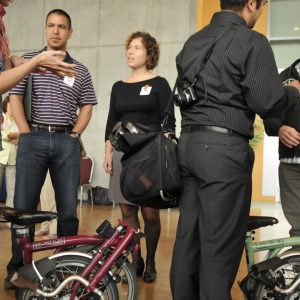
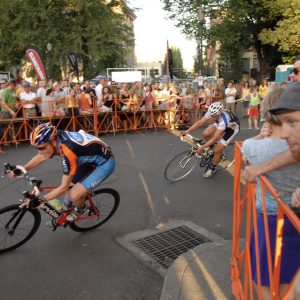
Thanks for reading.
BikePortland has served this community with independent community journalism since 2005. We rely on subscriptions from readers like you to survive. Your financial support is vital in keeping this valuable resource alive and well.
Please subscribe today to strengthen and expand our work.
Does seem a bit steep. Maybe that is why the picture seems to be made up mostly of older white guys (like me).
$85 for a two-day conference and training seminar that includes breakfasts, a lunch and Continuing Ed credit is cheap compared to similar events. Additionally, if cost is a problem for someone, there are scholarships available.
I’ve attended this several times, and compared to other events I attend the price is a bargain. I just wish there were more people in attendance who weren’t already believers.
“unlike in past years” – actually, it was originally in Portland. The move to Salem happened 3 or 4 years ago right before “Bike Summit” was re-branded to OATS. I miss the $50 admission, though.
Shift used to have a scholarship to send a person there, interested parties who can’t pony up $85 ($75 for early-bird registration) might check with them (shift2bikes.org) to see if they are offering a scholarship this year to go.